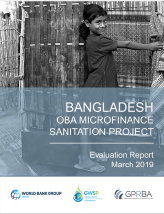
Some of the features of results-based approaches can help Output-Based-Aid (OBA) and Results-Based Financing (RBF) practitioners become more aware of behavior determinants to support behavior change and deliver results more effectively. The World Bank’s World Development Report 2015: Mind, Society, and Behavior identifies behavior determinants and barriers important to the successful implementation of infrastructure projects – whether OBA/RBF or otherwise. Even though it is assumed that affordability, awareness of program, and access to service are enough incentives to change the behavior of customers to access services, all based on rational behavior, studies have shown that people often do not make decisions on the basis of rational analysis, but within a psychological, social, and cultural nexus.
The studies have identified that much of our thinking is automatic – that is, largely outside voluntary control, using only a small portion of the relevant and available information to form conclusions. Our decisions are shaped by the norms, ideas, and identities that characterize the social networks to which we belong. Finally, we operate on the basis of mental models – broad ideas about how the world works, which we often hold onto even when their consequences are constraining, destructive, or demonstrably false. Poverty itself is a behavior determinant. Time pressure and financial stress put people under cognitive strain, which means that deliberate decision-making processes are not functioning optimally and people are relying, more than ever, on automatic thinking.
A number of features of OBA/RBF, such as the use of pro-poor targeting, the emphasis on accountability through the verification mechanism, and the focus on results, which themselves typically are behavioral in nature, can support behavior change. When designing projects, bringing an iterative process to bear on the challenges of behavior change can help guide project planners and implementing agencies. GPOBA conducted an online discussion on behavior change and whether RBF pushes the implementing partners and beneficiaries to discard irrational and automatic thinking, social norms and mental models. We would like to hear your perspectives on this topic and if you have any examples of biases that the RBF/OBA approach is better positioned to address. Please visit our discussion page here.










